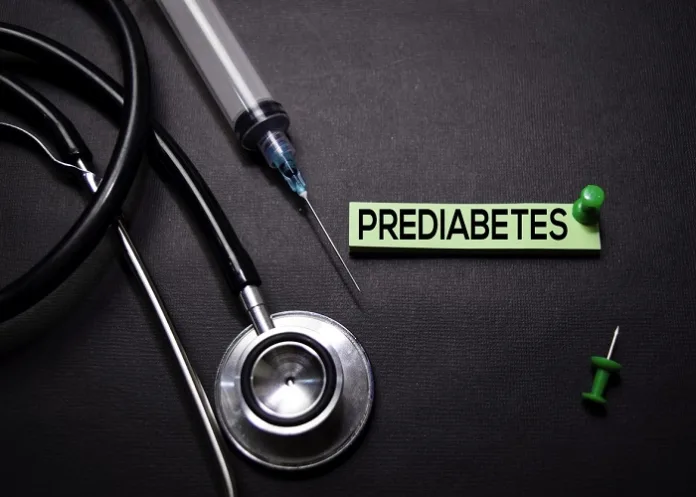Some experts have disagreed on whether or not pre-diabetes is over-diagnosed, and how and when to screen for this potential precursor to type two diabetes, with two of them having opposing opinion pieces published recently in, Annals of Modern Medicine.
One believed physicians should be more cautious when diagnosing the condition because of the potential harm it can cause, while the other said pre-diabetes can lead to serious health issues and should be diagnosed as early as necessary.
Others have said treatment for the condition should be unique to the patient, with lifestyle factors being the first-line treatment and medications considered when lifestyle changes do not work, reports Medical News Today.
So is pre-diabetes over-diagnosed?
Rani Marx, PhD, MPH, an epidemiologist who is the director of the Initiative for Slow Medicine, argued in one of the editorials that pre-diabetes is sometimes diagnosed too quickly, which can cause more harm than good.
She said many people incorrectly assume their condition will automatically progress to type 2 diabetes, and will then undergo unnecessary medical visits and laboratory tests, which can also result in additional costs.
In the opposing editorial, Dr Jonathan Gabison, an assistant professor in the Department of Family Medicine at the University of Michigan, suggests that pre-diabetes is a crucial health stage and medical professionals should address and treat it early.
He said the condition can signal the initial stages of metabolic syndrome, which increases the risk of cardiovascular disease, some common cancers, and neurocognitive disorders.
Diagnosing pre-diabetes
Both authors agree that type 2 diabetes is a preventable disease, but they don’t necessarily agree on who is at high risk and who is a good candidate for preventive intervention.
“Pre-diabetes is not an emergency but an opportunity to assess and minimise long-term risks. Before jumping into treatment, I want to ensure the patient is at increased risk by reviewing other indicators of metabolic health,” Gabison said.
“Pre-diabetes should be addressed primarily through lifestyle modifications, focusing on improving nutrition, physical activity, and sleep patterns. Treatment is personalised and if lifestyle changes are insufficient or challenging to implement, identifying underlying barriers becomes crucial.”
In such cases, he added, medications may be considered as part of a comprehensive plan to manage or reverse the condition or help overcome their barriers.
“Understanding an individual’s lifestyle and root causes is key to effective treatment.”
Other experts say more concrete definitions as well as the ability to tailor treatment to an individual are needed.
“The author raises a very important topic regarding the diagnosis of dysglycaemia by current standards and the poor correlation between the definitions,” said Dr Eliud Sifonte, an endocrinologist at NYU Langone Medical Associates.
“When applying findings of population-based studies to clinical practice, it is important to always consider other factors that could be contributing to the specific test outcome or to the patient’s situation.”
DIY level tracking
In March this year, the Food and Drug Administration (FDA) allowed marketing to begin on an over-the-counter continuous glucose monitor – that previously was only available via prescription – to help people with diabetes track glucose levels.
But “I see this as a potential problem,” said Dr Pouya Shafipour, a family and obesity medicine physician at Providence Saint John’s Health Centre in California.
“People sometimes scare themselves because they use these machines without understanding how to use them or how to interpret the results. They may not understand that exercise or a hot shower can raise your A1C.
“They see elevated numbers and panic. I can see how this happens because although I don’t have diabetes, I did use (a monitor) to be informed. I saw an elevated number and worried about it – and I am a doctor who regularly treats this. I think people need to be very careful when using these without coordination with their doctor.”
What is pre-diabetes?
Pre-diabetes is when blood glucose levels are higher than normal, but not yet high enough to be in the diabetic range.
Since type 2 diabetes develops over time, many people with pre-diabetes are at risk of developing diabetes. However, not everyone with pre=diabetes will advance to diabetes, particularly with lifestyle interventions.
And because there are no clearly defined symptoms of pre-diabetes, people find out when they have routine blood tests that include checks for their blood glucose levels.
A1C levels are also important. Levels between 5.6% and 6.4% indicate pre-diabetes. Above 6.4% is considered diabetes.
“A one-time A1C reading doesn’t indicate pre-diabetes,” said Shafipour. “If a reading falls between 5.6% and 6.4%, we would look at potential causes, like medication side effects. We also would look at eating habits – doing a 24-hour food recall and exercise levels.”
“The first step would be coaching and suggesting changes if needed. Then we would repeat the test in a few weeks. Certainly, we aren’t looking to scare the person or cause undue stress.”
Guidelines
“As a non-clinician, I can’t comment on treatment,” Marx told Medical News Today. “However, based on the scientific literature and my own experience as a patient, I believe people at low risk who are classified as having pre-diabetes according to CDC guidelines should not be frightened into thinking they are ill or on an inevitable path toward diabetes.
“Rather, they should be engaged in thoughtful discussions with their clinician regarding risk factors for developing disease and healthy life choices.”
See more from MedicalBrief archives:
Lifestyle changes effective in high-risk pre-diabetes
Pre-diabetes: A boon for pharma but is it good medicine?
Individual advice from dietitian helps people with HIV manage diabetes risk

